Volvo unveils electric coach chassis with 700 km range
Volvo Buses introduced its first electric intercity bus, the 8900 Electric, one and a half years ago. This was the first model to be built on the group’s new 600-volt BZR Electric platform. And it is precisely this architecture that the Swedes have now drawn upon to realise an even longer-range model for the coach segment. Instead of stopping at 540 kWh as before, the newly outlined coach chassis now reaches up to 720 kWh. Instead of six 90-kWh battery packs, the newcomer can accommodate eight units.
The move shows that Volvo’s developers have been working towards greater ranges for years: in buses, the 720 kWh battery capacity for up to 700 kilometres marks a temporary peak. In trucks, Volvo Trucks will launch a successor to the FH Aero Electric in 2026, which, thanks to a 780-kWh battery, will then manage up to 600 kilometres. Interestingly, the BZR platform for Volvo’s electric buses uses batteries from its truck colleagues – the 90-kWh packs with NCA chemistry, each weighing 535 kg. The new coach version also continues to rely on these batteries from the current electric truck generation. The long-haul truck announced by Volvo Trucks, however, is expected to switch to other batteries. Even though Volvo has not yet disclosed the details, the truck also houses eight battery packs, but reaches 780 kWh gross, 60 kWh more than the future coaches.
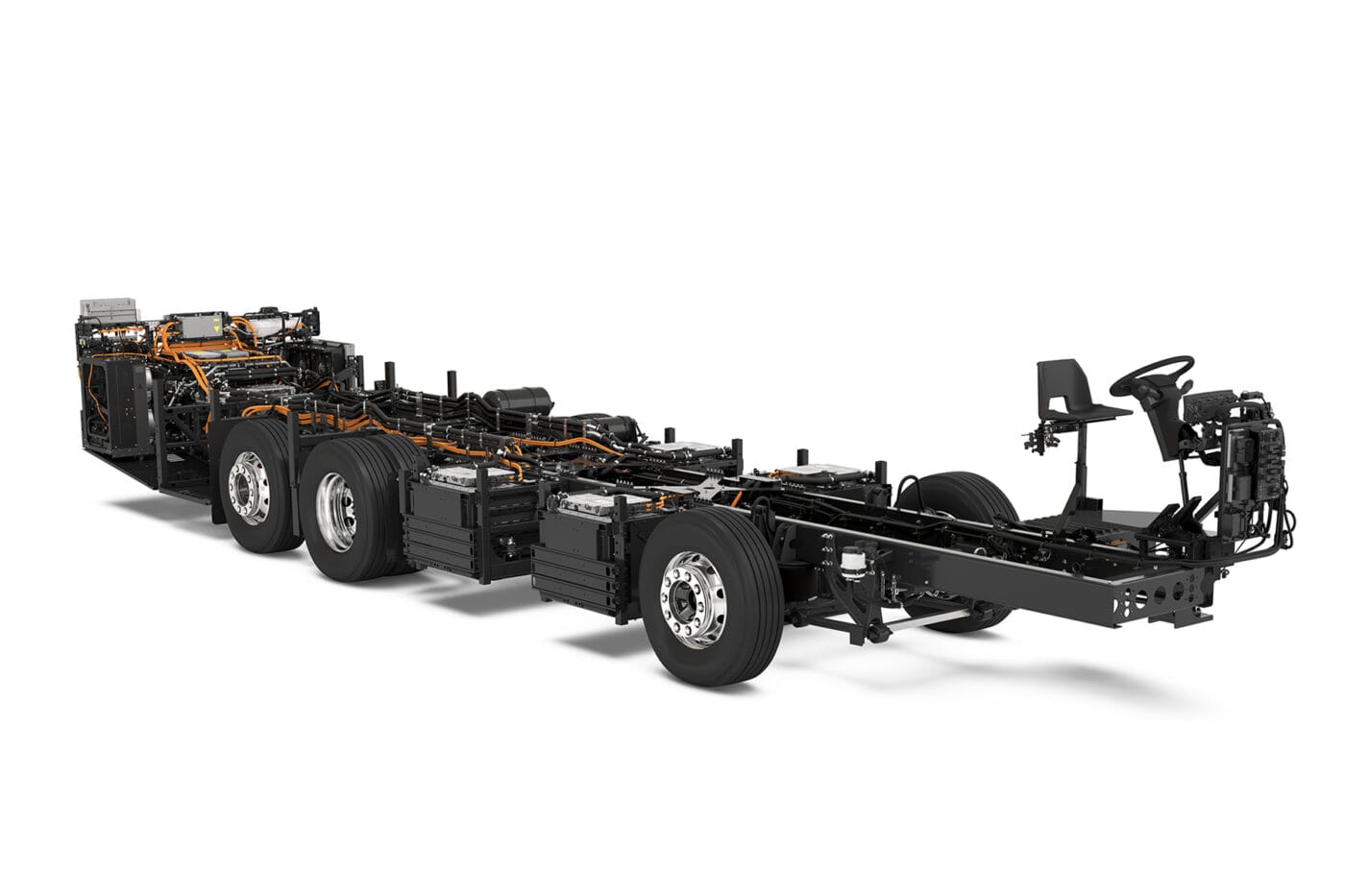
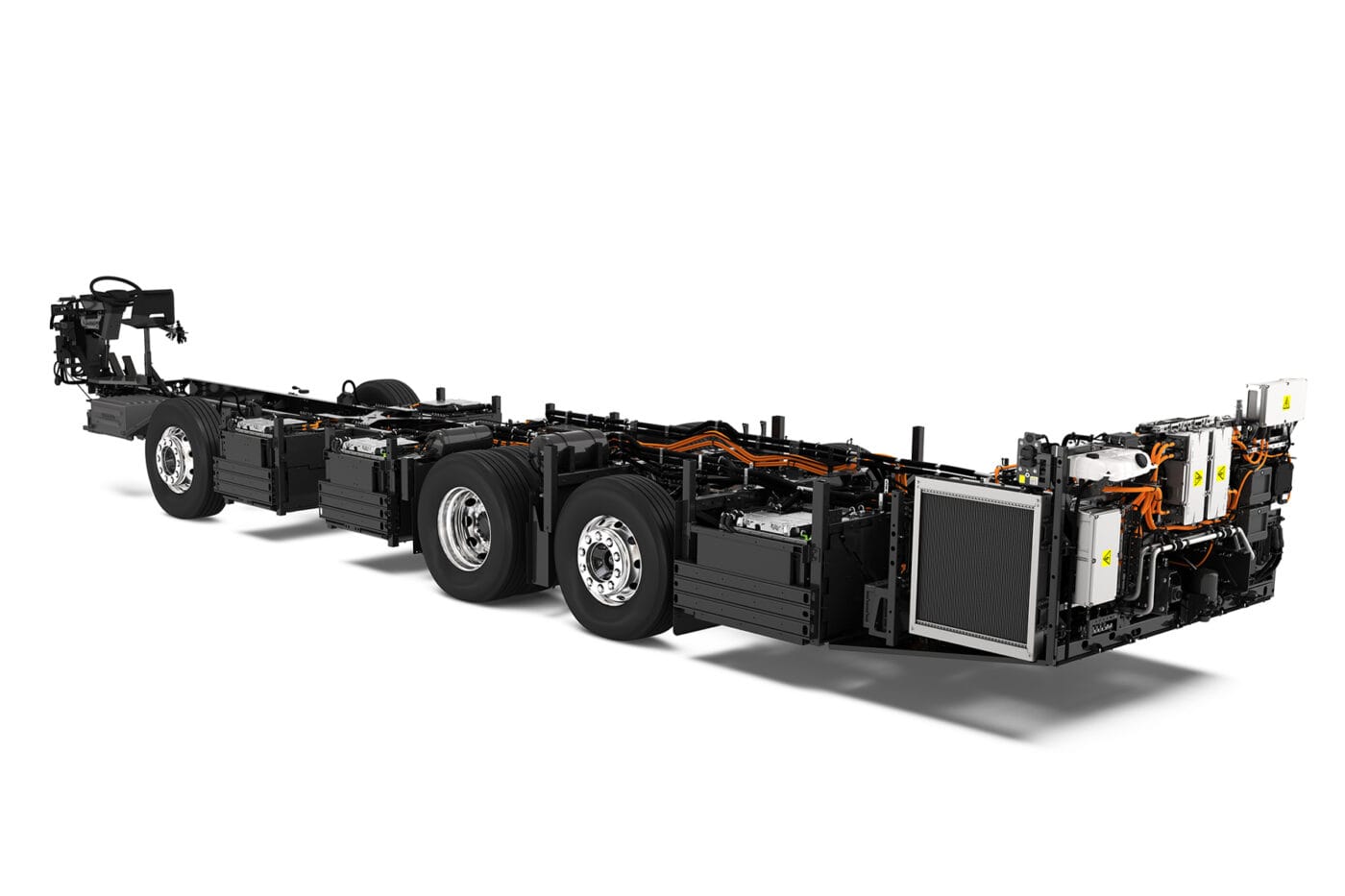
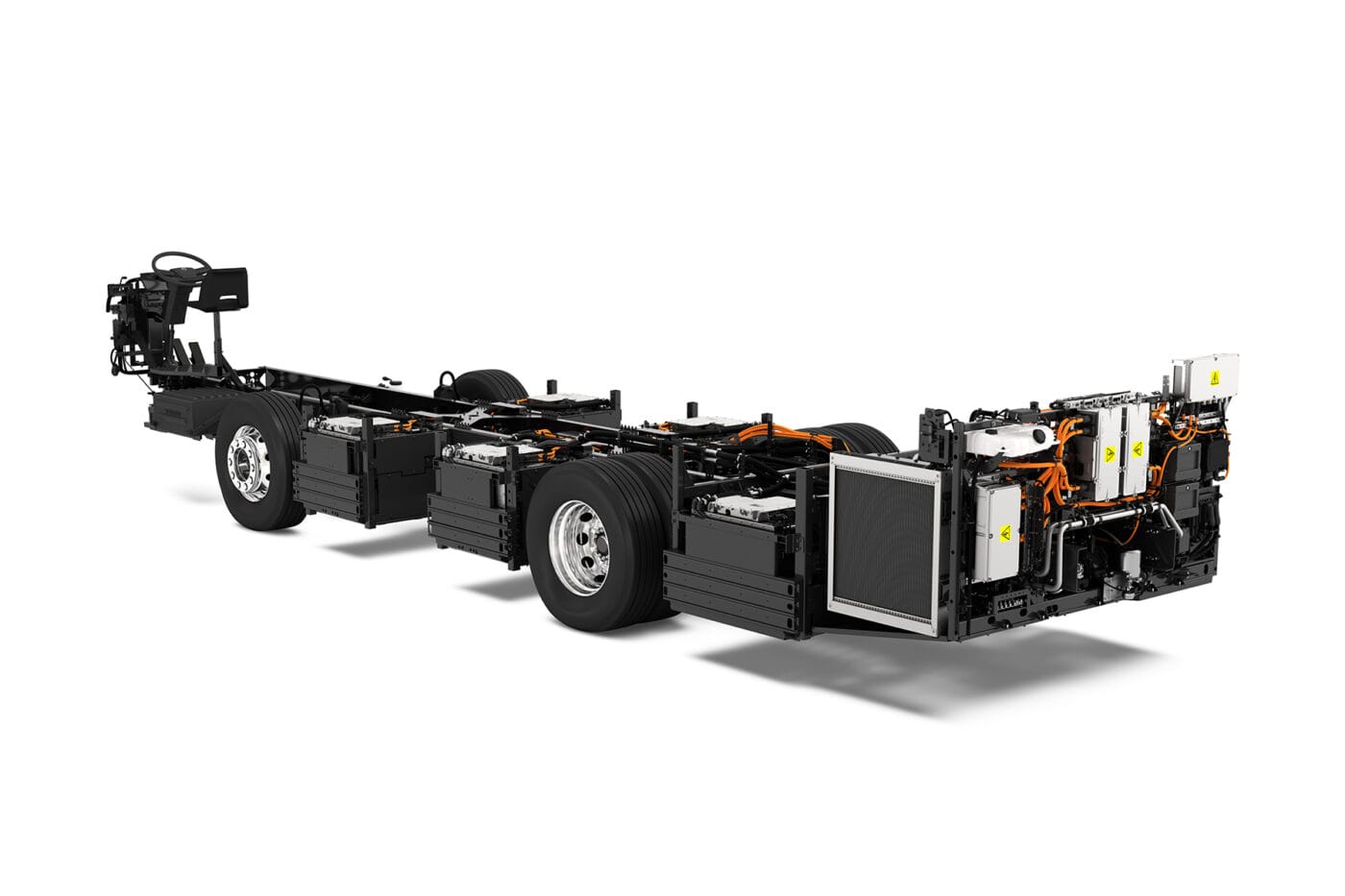
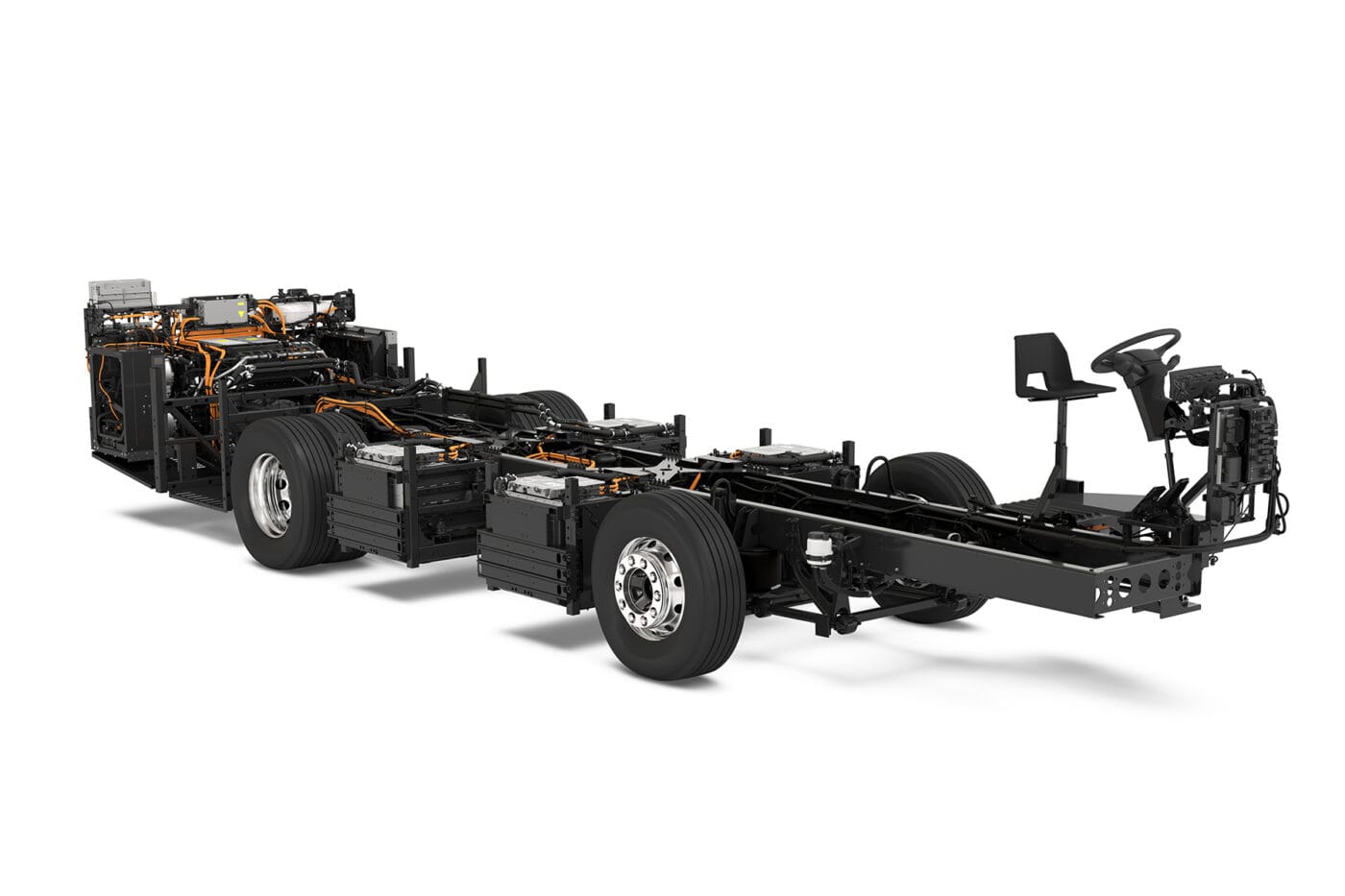
In any case, on to the data sheet: the modified BZR Electric supports coaches with 4×2 or 6×2 axle configurations, lengths of 9.5 to 14.9 metres, and gross vehicle weights of up to 27.2 tonnes. The drive system remains unchanged at 200 or 400 kW. Battery pack configurations between four and eight units (360 to 720 kWh) are possible. Volvo Buses states the range of up to 700 kilometres for the chassis in the SORT 3 test cycle. Like all vehicles based on the BZR Electric, the coaches can be charged using two hardware interfaces – either by cable with up to 250 kW DC (charging port available on the left or right) or optionally via OppCharge with a maximum of 450 kW DC.
“This is an electric coach chassis capable of longer journeys with fewer charging stops and greater operational versatility – enabling long interregional routes that were previously not viable for electric coaches,” the Swedes emphasise in a press release. Volvo Trucks describes the battery capacity of up to 720 kWh as “industry-leading”.
The manufacturer does not specify exactly when the first coaches based on the modified BZR platform will hit the roads. However, Volvo stresses that the electric chassis will be offered with bodies from different bodybuilders depending on the market and customer requirements. And: “The first Volvo BZR Electric coach chassis has already been bodied by Carrus Delta and is intended for customers in the Nordic and Benelux markets.”
Volvo Buses also published the data sheet for a model called Volvo BZR Electric CD, featuring a 6×4 axle configuration, a 720-kWh battery, and lengths of 13.3, 14.0, or 14.9 metres. The CD likely stands for the aforementioned bodybuilder Carrus Delta. Here are the press images of this model:
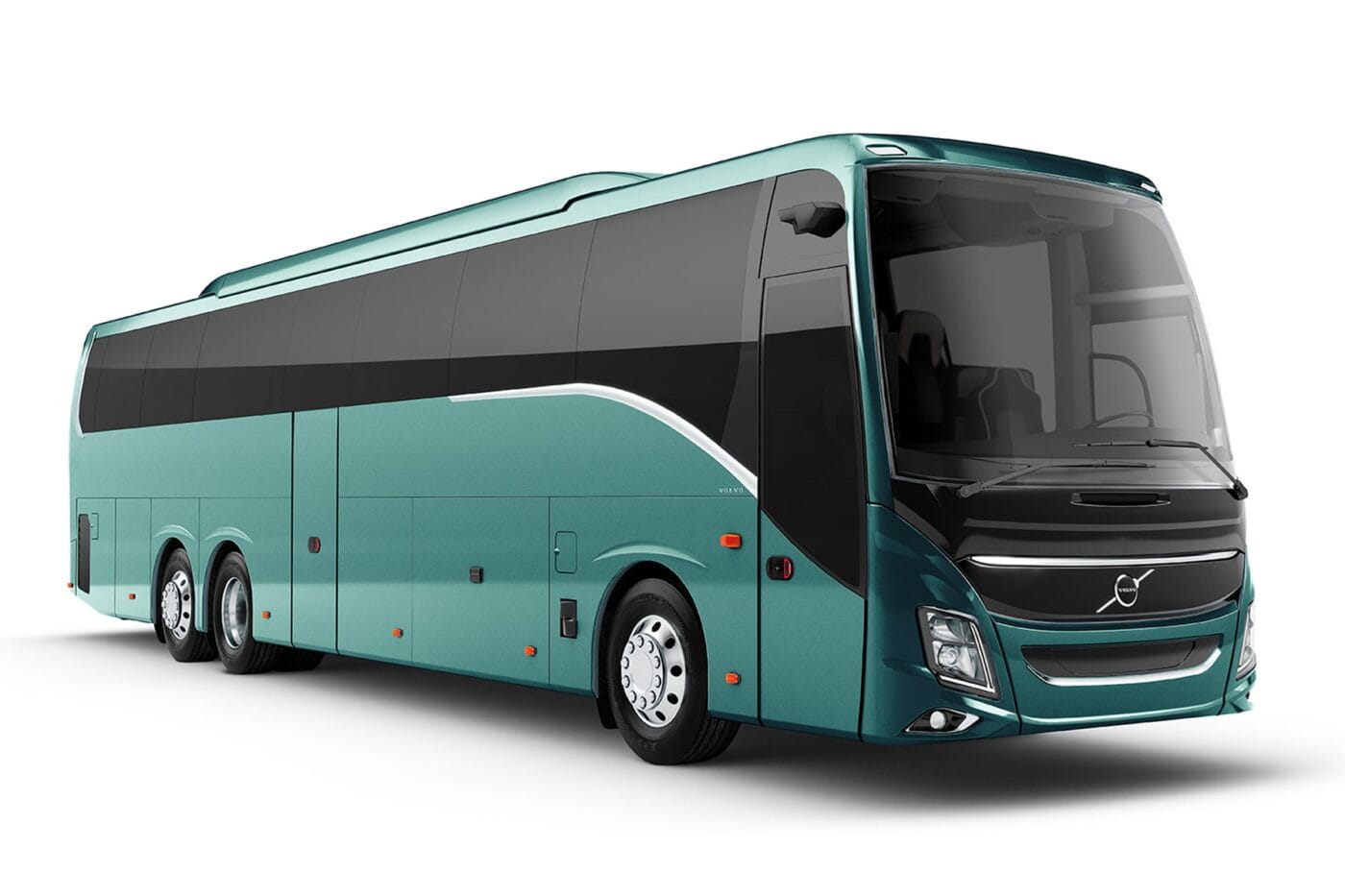
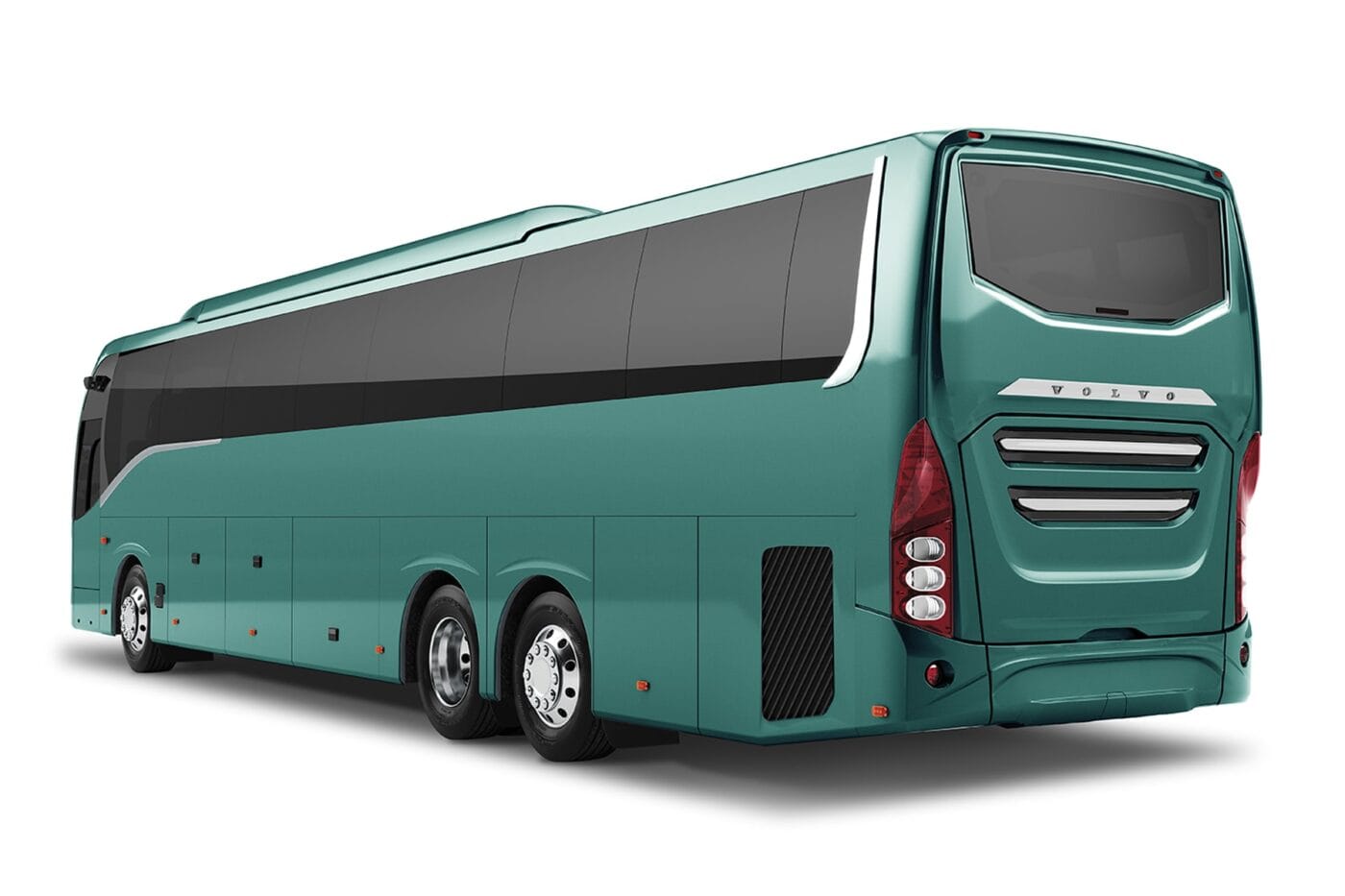
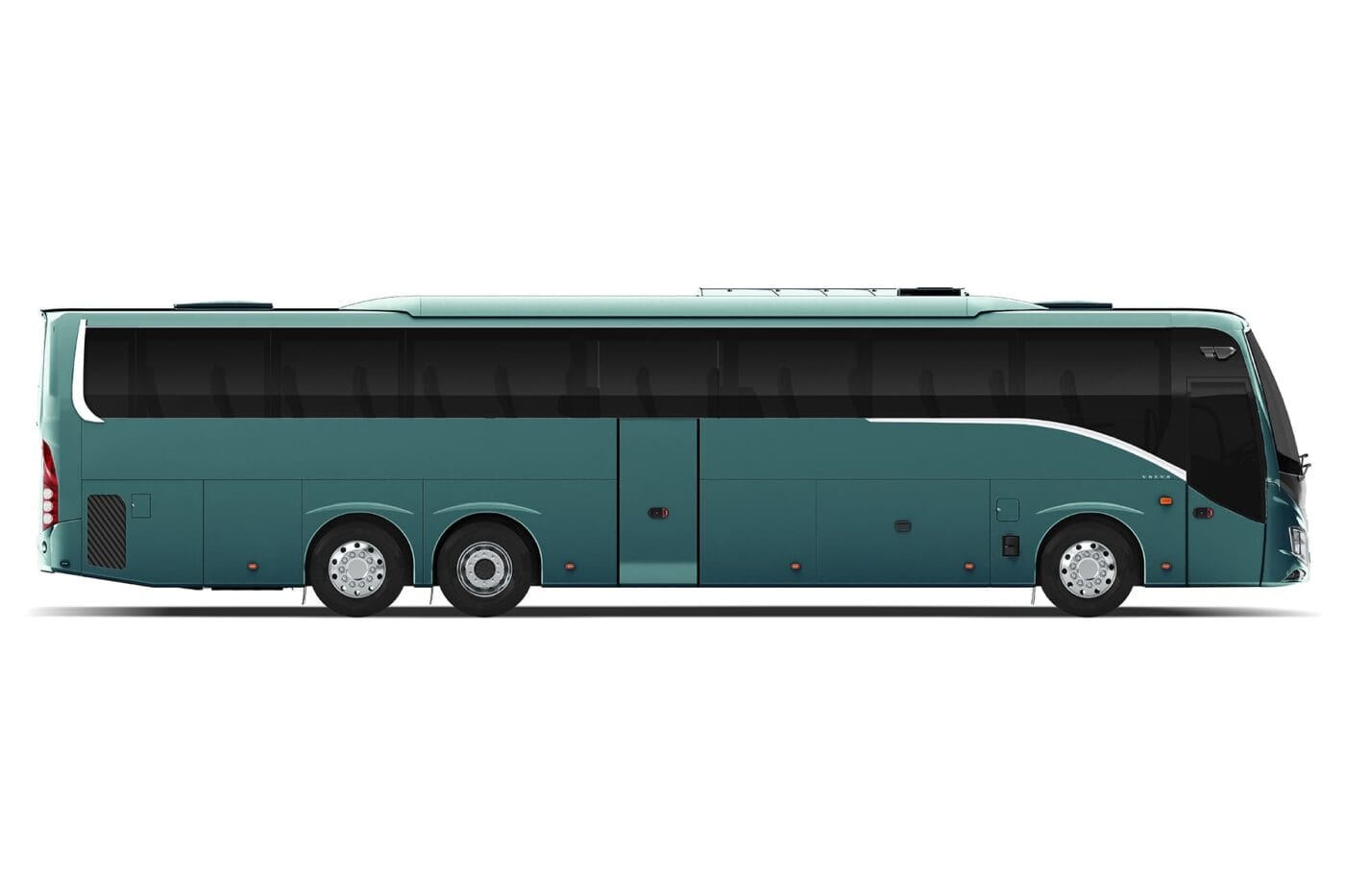
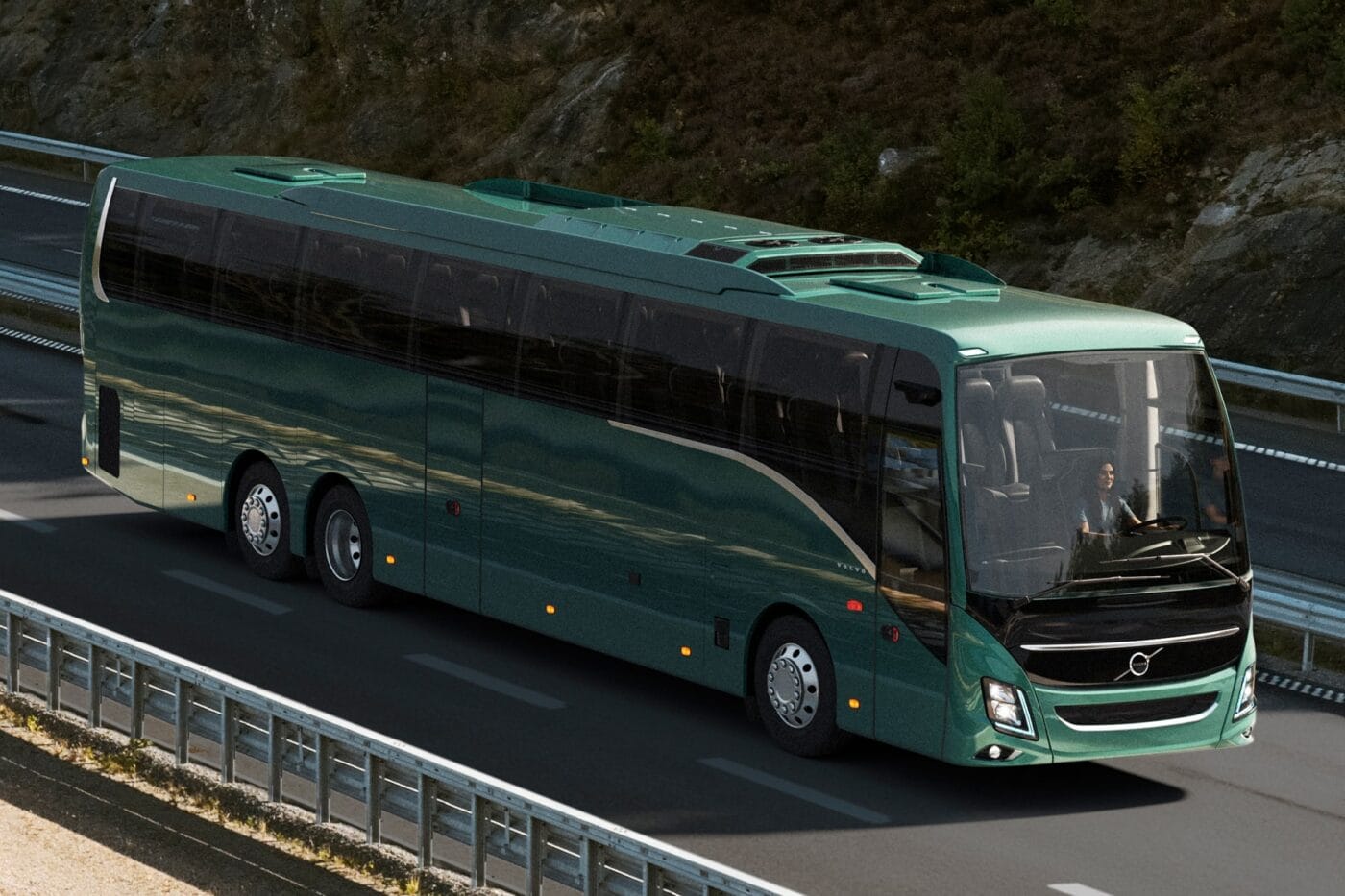
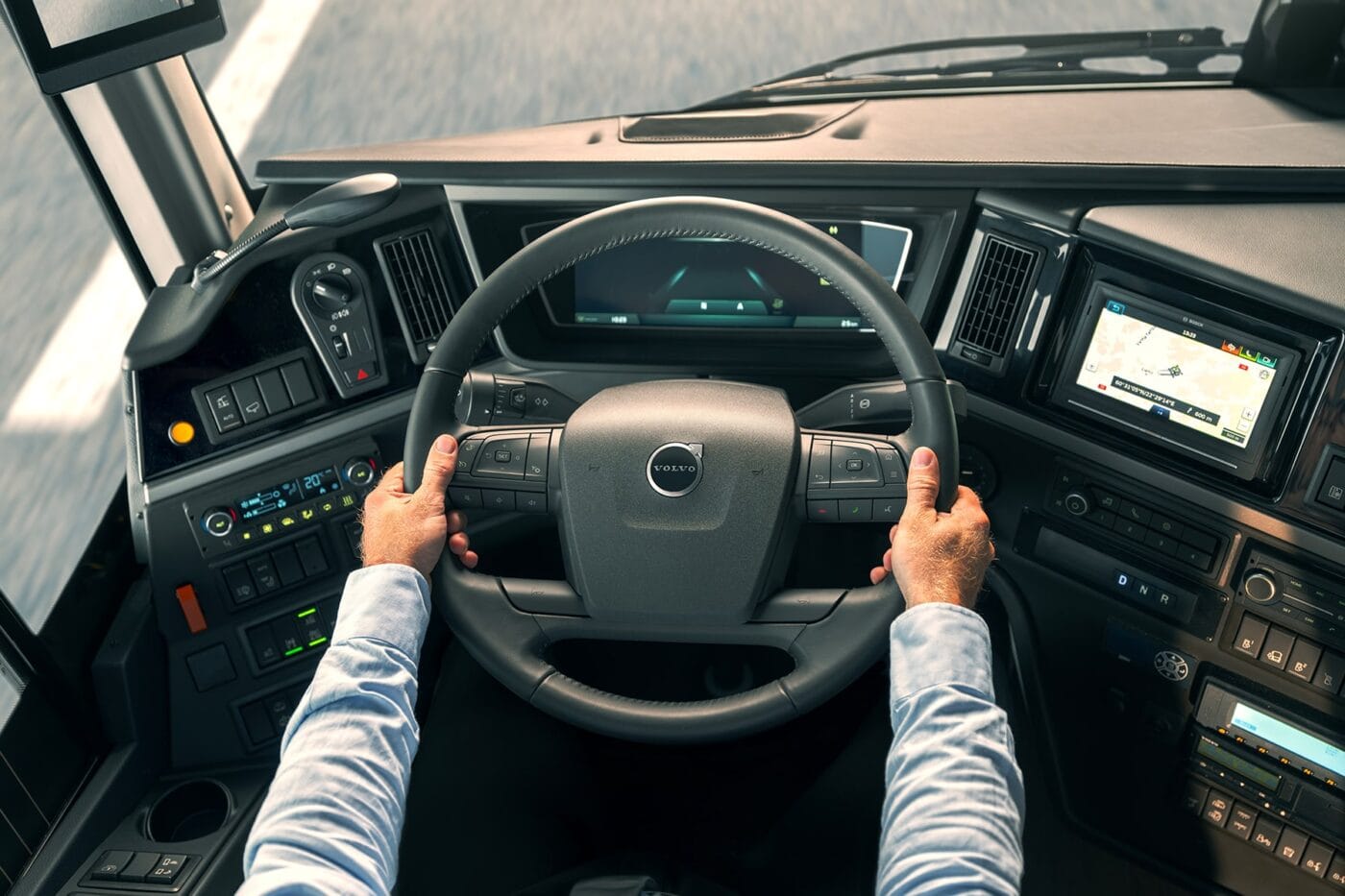
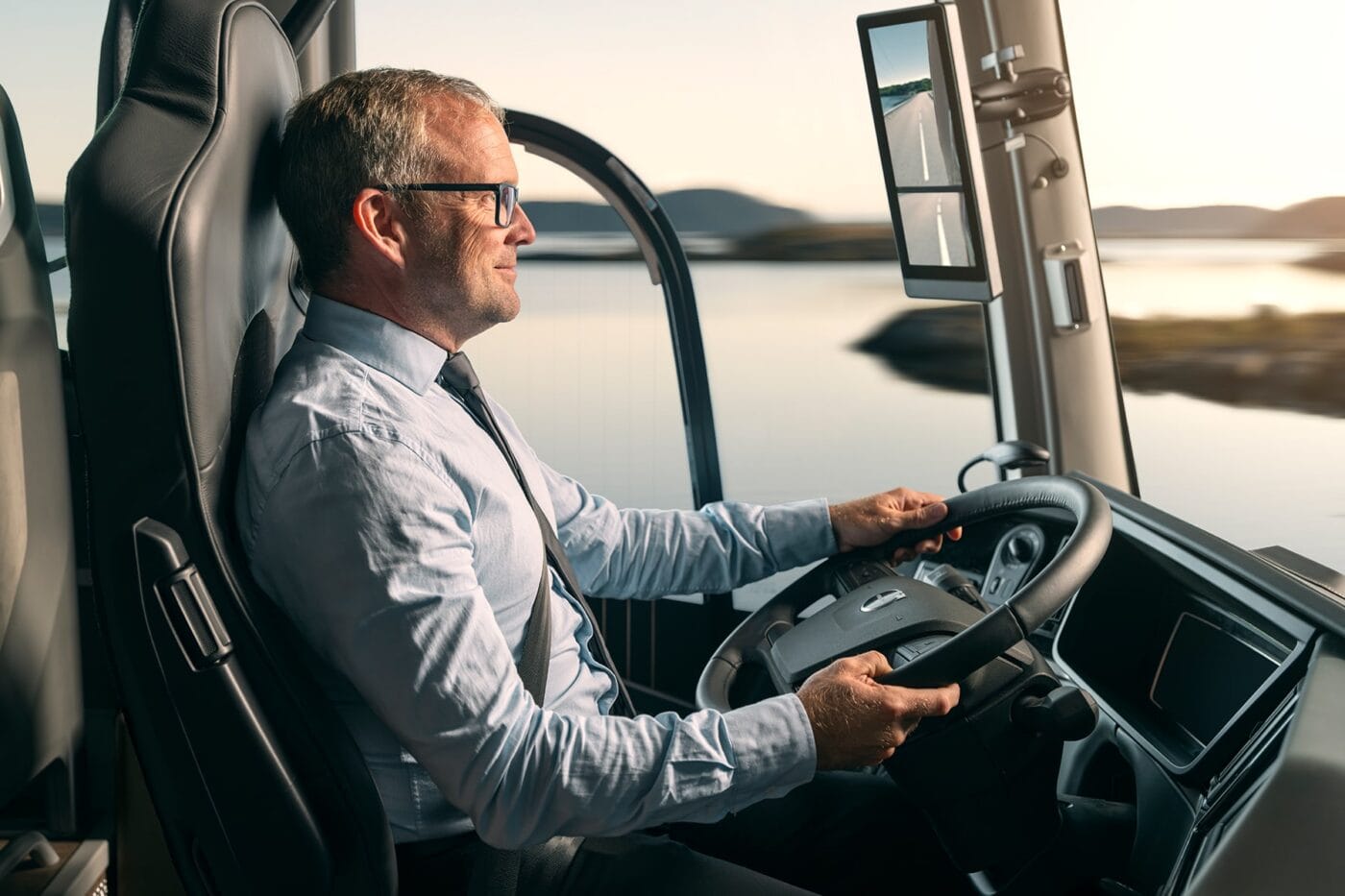
Anna Westerberg, President of Volvo Buses, underlines that the new electric chassis offers more than just greater range. “It enables new routes and gives operators greater versatility. We are proud to present a solution that makes sustainable travel accessible to more people on more routes.”
The new coach chassis on the modified BZR Electric shows how electrification can go beyond reducing exhaust emissions. “With responsibly sourced materials and a product built to last, we minimize the life-cycle footprint. And we do this while delivering comfort, efficiency, and the highest safety standards for both everyday commuting and long-distance journeys.”
As a reminder: Volvo Buses unveiled the BZR Electric in March 2024 as the result of a joint e-mobility architecture within the Volvo Group. Three years earlier, in September 2021, Volvo had already presented an electric chassis called the BZL Electric (with an L rather than an R), which was designed for single- and double-decker buses. Apart from the similar name and the same drive power (200 and 400 kW), the two have little in common.
In its base configuration, the BZR Electric supports vehicles between 9.5 and 14.9 metres in length and up to 540 kWh nominal battery capacity. At its heart is an electric motor coupled with a two-speed automated gearbox, delivering 200 kW or 400 kW in dual-motor configuration. But even at the unveiling of the platform, the Swedes pointed to the “outstanding versatility” of the product. It was said to be particularly “future-proof.” At the time, the manufacturer anticipated that “it is designed to enable versions for both Bus Rapid Transit (BRT) and, later on, coach applications.”
By the way, Volvo Buses recently also began production of its first electric chassis for extra-long e-buses. The so-called BZRT chassis serves as the basis for both articulated and bi-articulated buses of up to 28 metres in length. And once again, the 720 kWh total capacity appears – distributed across eight battery packs with the same 200 or 400 kW motorisation. The drive systems of the very long city buses and the coaches from Volvo are therefore quite similar.
volvobuses.com, volvobuses.com (press kit with downloadable data sheets)
This article was first published by Cora Werwitzke for electrive’s German edition.

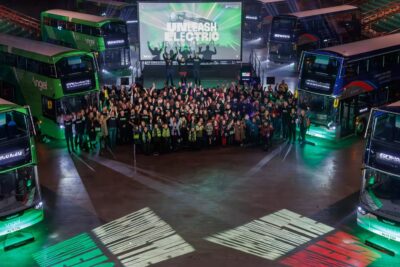


1 Comment